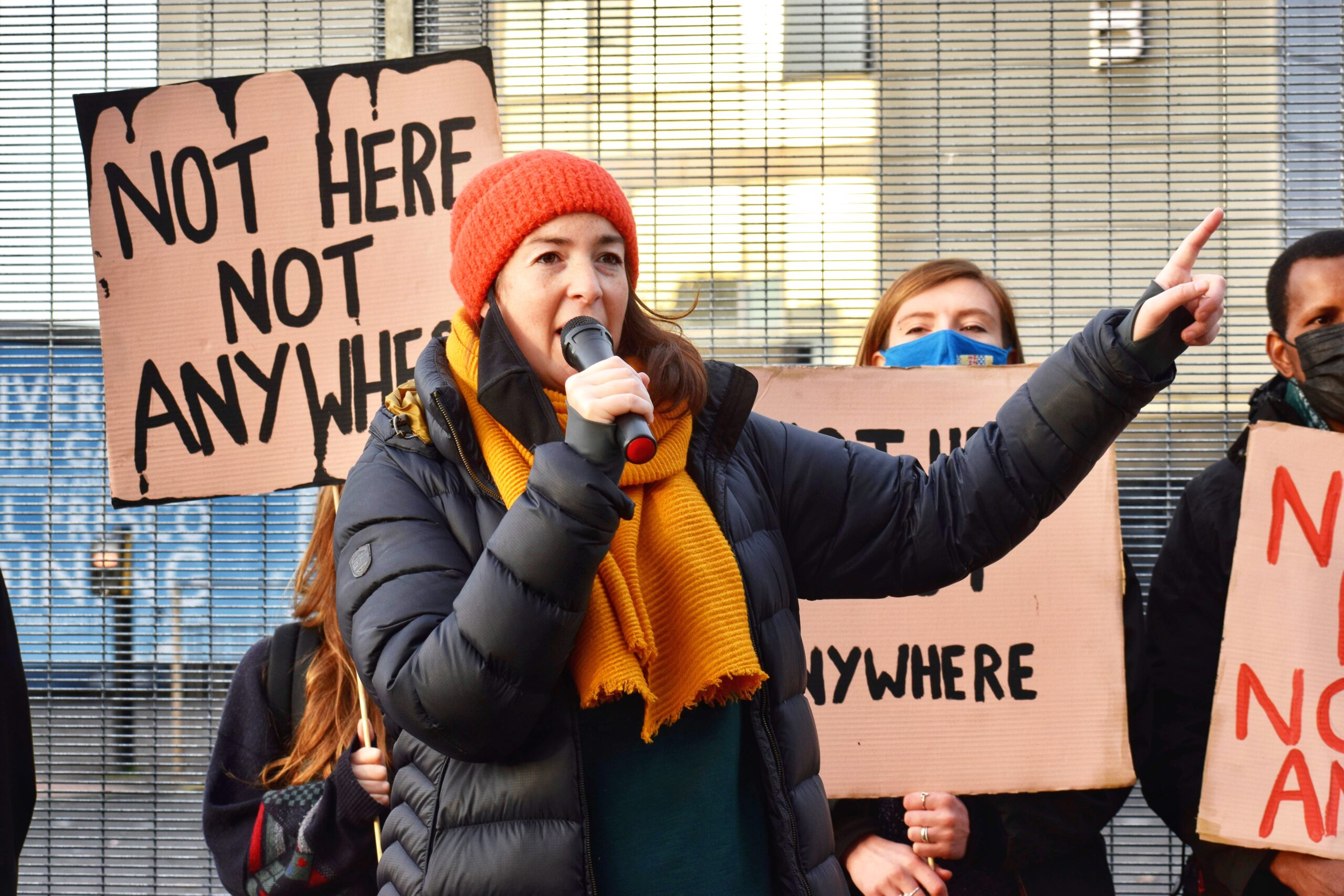
New report shows a cleaner, greener energy future for Scotland is possible
A new report shows for the first time that a truly sustainable energy future is achievable for Scotland, meeting climate change, renewable energy and energy saving targets and creating new economic opportunities while protecting sensitive environments and maintaining security of supply.
The Power of Scotland Renewed report, based on research by independent energy analysts Garrad Hassan, and commissioned by Friends of the Earth Scotland, the World Development Movement, WWF Scotland and RSPB Scotland, shows that there is enormous potential to increase generation of electricity from renewable sources during the next two decades, so much so that by 2030 renewable energy can meet between 60% and 143% of Scotland’s projected annual electricity demand.
If Scotland also meets official targets for energy saving, the research concludes it is feasible for all fossil fuel fired generation to be closed by 2030, delivering almost complete decarbonisation for Scotland’s electricity supply [note 1]. Even in the “business as usual” case Scotland does not require any new fossil or nuclear capacity to maintain security of supply [note 2]. Instead security of supply can be maintained by practical investments in grid upgrades, interconnectors, deferrable demand and electricity storage [note 3].
Duncan McLaren, Chief Executive of Friends of the Earth Scotland, said: “The threat from climate change grows daily but we still have time to take action to prevent climate chaos, as this report clearly shows. Scotland’s world-leading Climate Change legislation commits us to cutting overall greenhouse gas emissions by at least reality. It is vital that we grasp the new economic and job opportunities that would come with a sustainable energy future.”
Liz Murray, Head of Scottish Campaigns for the World Development Movement, said:”300,000 people are already dying every year due to climate change (note 4). The vast majority of these are in developing countries, which have contributed virtually nothing to the problem. Developing countries need to see rich countries not only committing to reduce emissions, but also bringing in policies now to ensure those emissions reductions happen. Our report shows that the Scottish Government can do this by ruling out coal in Scotland and embracing energy efficiency and renewables. And if they do it before the international climate change negotiations in December, they could make a real and lasting contribution to reaching a global agreement. “
Dr Richard Dixon, Director of WWF Scotland said: “Scotland has the best renewable energy potential of any country in Europe and we should be aiming high. This new report provides us with a clear description of how to set ourselves on the path to 100% renewable power. The message is clear, Scotland’s renewable potential has to be fully realised and that means harnessing the considerable wave and tidal power of our seas and continuing the expansion of both onshore and offshore wind. When combined with the oft forgotten investment in energy efficiency and demand management, Scotland can be confident of having a secure decarbonised electricity supply, the critical first step to reducing our emissions by at least 80% by 2050.”
Aedán Smith, Head of Planning and Development, RSPB Scotland, said: “Given the importance of addressing climate change, which is the largest threat to biodiversity and sustainable development, we welcome the findings of this report that demonstrates that the Government’s targets for emissions reductions and renewable energy can be met without environmental harm. It is extremely welcome that the Scottish Government is committed to such protection of the natural environment – and this report clearly shows that they do not need to compromise this objective to meet their other climate change targets.”
ENDS
Media contact: Davina Shiell 0131 243 2700
Notes for Editors
1. The power generation sector is the largest single source of carbon dioxide, it is vital that Scotland’s electricity generation is decarbonised by 2030.
2. In no scenario in the research does the scheduled decommissioning of large generation capacity at Cockenzie, Hunterson B and Longannet seriously compromise Scotland’s energy security. Moderate investment can ensure that Scotland’s energy needs will be met even if the supply from variable renewable sources falls to zero during a period of peak demand. Although there are industry proposals for a new 1600MW coal plant at Hunterston, a gas-fired replacement power station at Cockenzie, it is clear that these are not essential for Scotland’s energy security.
3. Deferrable demand means electricity use that can be postponed over a matter of hours, such as much refrigeration or power for domestic appliances for washing. Storage means electricity storage over hours or days, using technologies such as batteries or pumped storage hydro. Increased use of battery powered electric vehicles or of electric heating systems would increase the capacity of the system to store electricity or defer demand.
4. Global Humanitarian Forum, “The anatomy of a silent crisis”. A comprehensive report documenting the global impact of climate change on human society today, launched in London on 29 May 2009 by Kofi Annan. The 300,000 estimate includes deaths from climate-related disasters, such as cyclones and flooding, as well as from climate-related illness, such as malnutrition and diarrhoea.
Friends of the Earth Scotland exists to help people in Scotland look after the planet for everyone’s future. We think globally and act locally in Scotland, delivering solutions to the problem of climate change by enabling and empowering people to take both individual and collective action. We offer help to people with the big things in life – helping to sustain a healthy society and environment. We believe that all of our children’s futures will be better because of what we do. Friends of the Earth Scotland is an independent Scottish charity SC003442.
The World Development Movement campaigns to tackle the root causes of poverty, joining movements around the world, winning justice for the world’s poorest people. www.wdmscotland.org.uk
